17 Short Moral Stories for Kids (in English)
This post may contain affiliate links. Please see my full disclosure policy for details.
When we were children, our parents or guardians would often tell us simple tales to teach us moral lessons. These stories were usually short and straightforward, designed to help us understand the importance of making good decisions. As kids, these stories captured our imaginations, prompting us to think deeply about the lesson within them.
The stories weren’t necessarily always enjoyable or fun – but they were essential for helping us understand the consequences of certain acts. They showed us why it’s important to treat other people with kindness and respect, and emphasized the need for honesty, patience and hard work.
In our adult lives, these moral tales still have relevance. As grownups, we can still appreciate the simple messages they convey and use them to help guide our own everyday decisions.
In a world full of uncertainty, these moral stories serve as an opportunity for us to pause and reflect on what is truly important in life. Let their messages linger with you; don’t forget the valuable lessons that have been passed down from generation to generation.
No matter where you come from or how old you are, moral stories have something to offer everyone. They can help us make better choices, become more understanding and compassionate people, and live our lives with intention. So next time someone tells you a moral tale, take the time to listen and learn from it – it might just be the key to unlocking a better life.
17 Short Moral Stories in English
Reading short stories with lessons is a good way to keep kids engaged. It can help them think about the world and how their choices affect it. As they get older, these stories will be like maps to help them understand tough situations. so come join us on this amazing journey of exploration!
1. The Ant and the Grasshopper
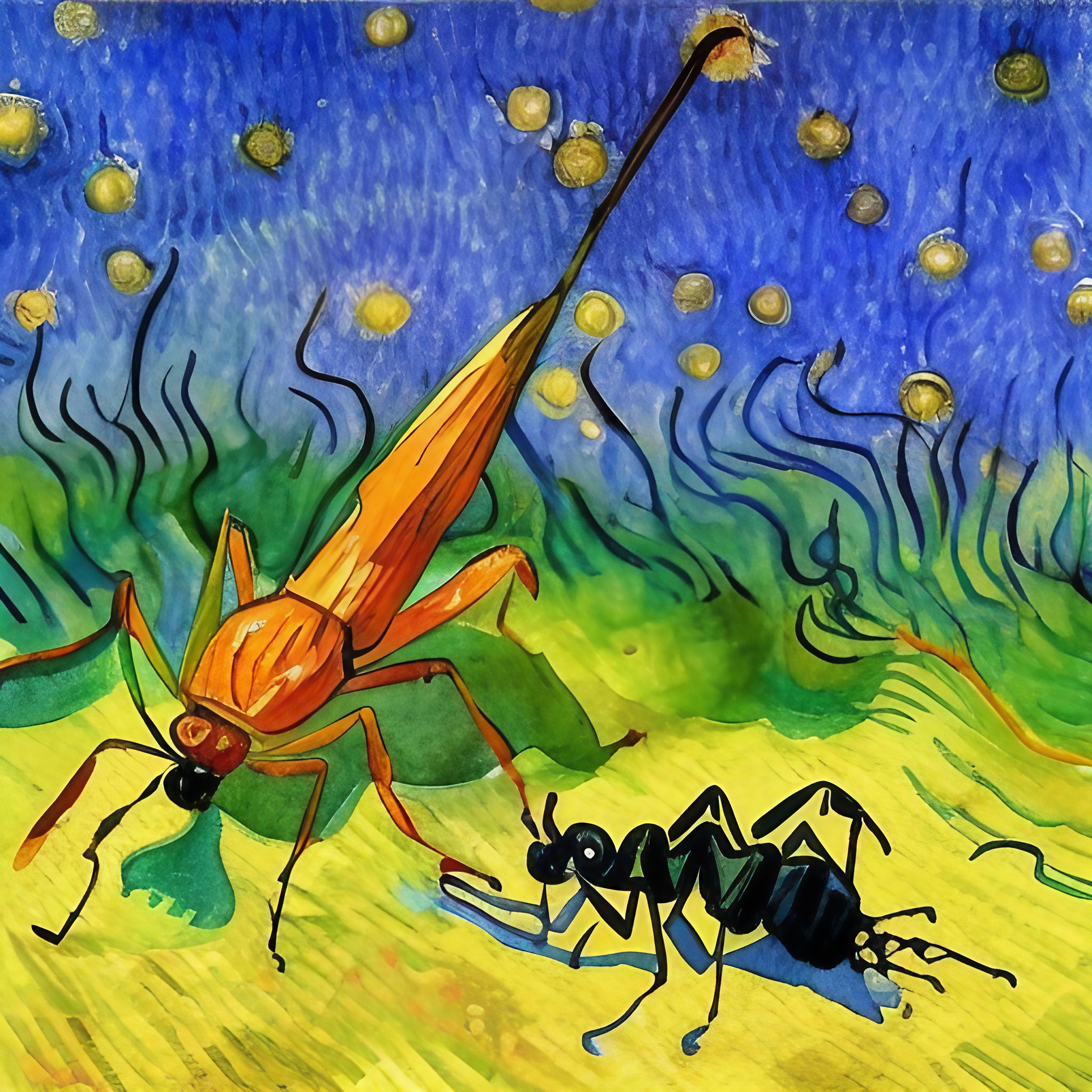
Once upon a time, there were two friends named Ant and Grasshopper. Ant loved to work hard and save food for the winter, while Grasshopper loved to sing and play all day long.
One summer day, Ant was out collecting food for the winter. “Come with me and help me gather food,” Ant said to Grasshopper. But Grasshopper replied, “Oh no, it’s much too beautiful of a day to work. I’d rather sing and play.” Ant smiled and went on his way.
Days turned into weeks, and weeks turned into months. Summer passed, and fall came. The days grew shorter, and the leaves started to fall off the trees. Ant had stored enough food to last the winter, but Grasshopper had nothing.
Winter came, and it was very cold. Grasshopper had no food or shelter. He started to feel hungry and cold. He thought about his friend Ant and went to visit him. Ant welcomed Grasshopper and shared his food with him. “I’m sorry, my friend,” said Grasshopper. “I should have helped you gather food for the winter.”
Ant replied “That’s alright, my friend. I’m just glad you’re safe. And remember for the next summer, let’s gather food together, so you won’t have to suffer like this next winter.”
From then on, Grasshopper joined Ant in gathering food for the winter, and they lived happily ever after.
The moral of the story is: It’s important to work hard and save for the future, but it’s also important to enjoy the present and make memories with friends.
2. The Boy Who Cried Wolf
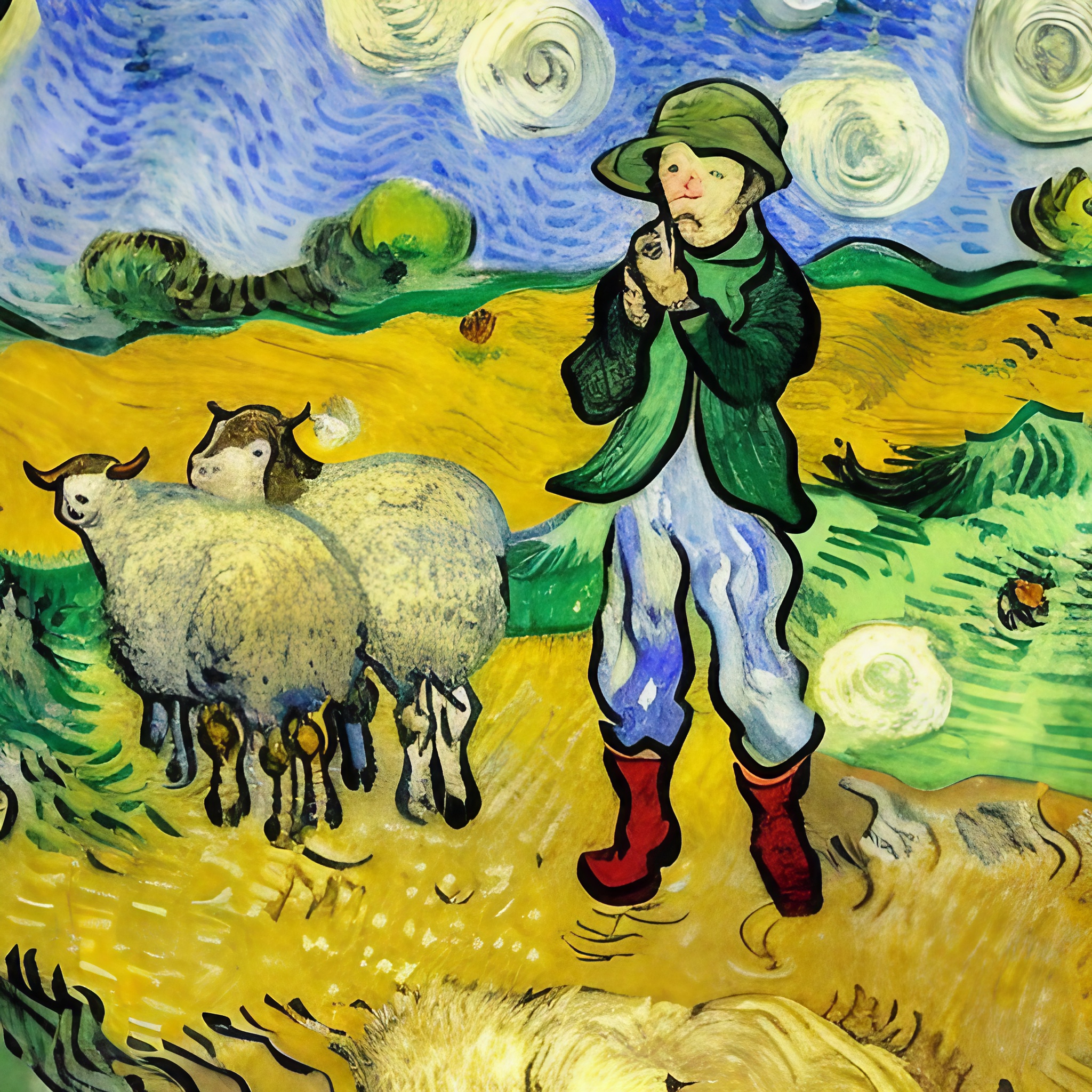
Once upon a time, in a small village, there lived a young boy named Timmy. Timmy was known to be a playful and adventurous boy, but he had one bad habit, he loved to play pranks on his friends and family.
One day, as Timmy was wandering through the countryside, he came across a field of sheep. He had a bright idea and shouted out “Wolf! Wolf! Help, a wolf is coming!” The villagers, who were working on their farms, rushed to help Timmy, but when they got there, there was no wolf to be found. Timmy laughed at the joke he played on the villagers and went back home, thinking it was funny.
A few days later, Timmy got an idea for another prank, so he went out to the field of sheep and shouted “Wolf! Wolf! Help, a wolf is coming!” again. This time, the villagers were a little more skeptical, but they still rushed to help Timmy. Again, there was no wolf to be found.
This went on for days, and each time, fewer and fewer villagers came to help Timmy. Finally, one day, a real wolf came and attacked the sheep, but when Timmy shouted “Wolf! Wolf! Help, a wolf is coming!” no one came to help him because they were fed up with his pranks. The wolf took many sheep from the field.
Feeling guilty, Timmy went to apologize to the villagers, and they forgave him. From then on, Timmy stopped playing pranks, and he learned that honesty is the best policy.
The moral of the story is: Lying and playing pranks can hurt people’s trust and cause real problems. It’s important to be honest and responsible with our words.
Related: Potty Training Activities
3. The Tortoise and the Hare
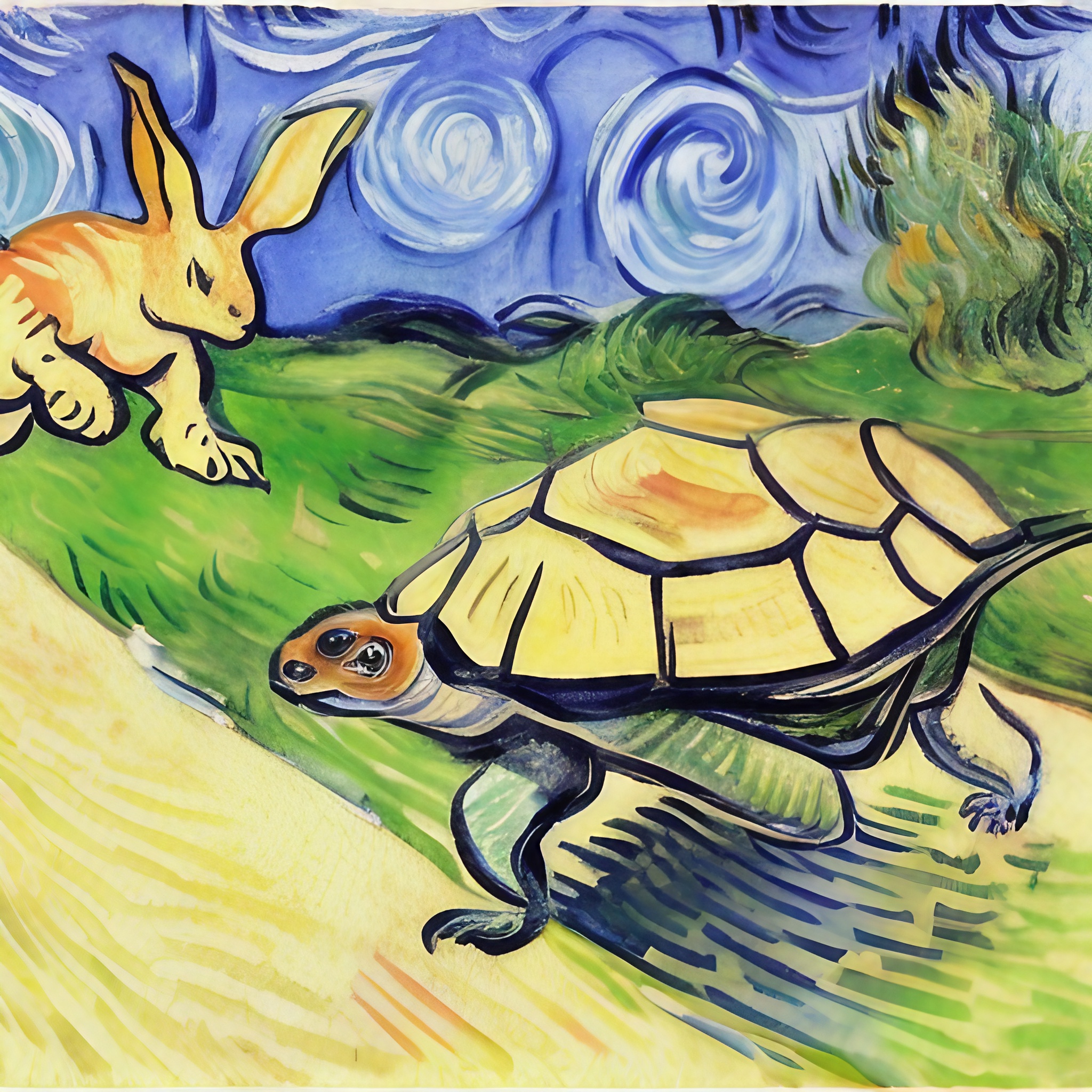
Once upon a time, there lived a hare named Speedy, and a tortoise named Slowpoke. Speedy was very confident and loved to boast about how fast he could run, while Slowpoke was more laid back and took his time with everything.
One day, Speedy challenged Slowpoke to a race. “I bet I can beat you in a race,” said Speedy. “You’re just too slow,” he laughed. Slowpoke smiled and accepted the challenge.
The race began, and Speedy took off like a rocket. He quickly raced ahead and thought he had won the race for sure. But, he grew overconfident and started to show off his speed, taking breaks, and even pausing to take a nap.
Slowpoke, on the other hand, kept a steady pace and never gave up. He knew he might not be as fast as Speedy, but he was determined to finish the race.
When Speedy finally woke up, he realized that Slowpoke was getting closer and closer to the finish line. He panicked, and tried to race as fast as he could, but he was too late. Slowpoke crossed the finish line first, beating Speedy.
Speedy felt ashamed, he had been overconfident and didn’t take the race seriously, while Slowpoke had determination and persistency that made him win. He went to Slowpoke and apologized for his attitude, and from that day on, the two became good friends, Slowpoke taught Speedy about steady progress, and Speedy taught Slowpoke about enjoying the moment.
The moral of the story is: slow and steady wins the race, hard work and determination can bring success, and not to be overconfident and arrogant.
4. The Lion’s Share

Once upon a time, in a lush jungle, there lived a pride of lions. The leader of the pride was a lion named Leo, who was known to be strong and powerful. Leo loved to eat meat, and he always took the biggest piece for himself, leaving the other lions with small scraps.
One day, a group of hunters came to the jungle and killed a wildebeest. They left the carcass behind, and the lions found it. Leo, as usual, took the biggest piece of meat for himself and then distributed the remaining meat to the rest of the pride.
But, one of the lionesses, named Lola, had had enough. She approached Leo and said, “Why do you always take the biggest piece of meat for yourself? The rest of us are hungry too.” Leo was taken aback, he had never thought about how his actions affected others.
Leo felt guilty, he realized that his habit of taking the lion’s share had made the other members of the pride unhappy and resentful. He apologized to the pride and decided to share the meat equally among them, so everyone could eat their fill.
From that day on, Leo changed his ways, and the pride lived in harmony. They shared everything, including food and hunting responsibilities. They worked as a team and enjoyed their food together.
The moral of the story is: It’s important to be fair and share with others, and be aware of how our actions may affect others. And working together can bring more happiness and success.
Related: Awesome Online Parenting Classes
5. The Fox and the Grapes
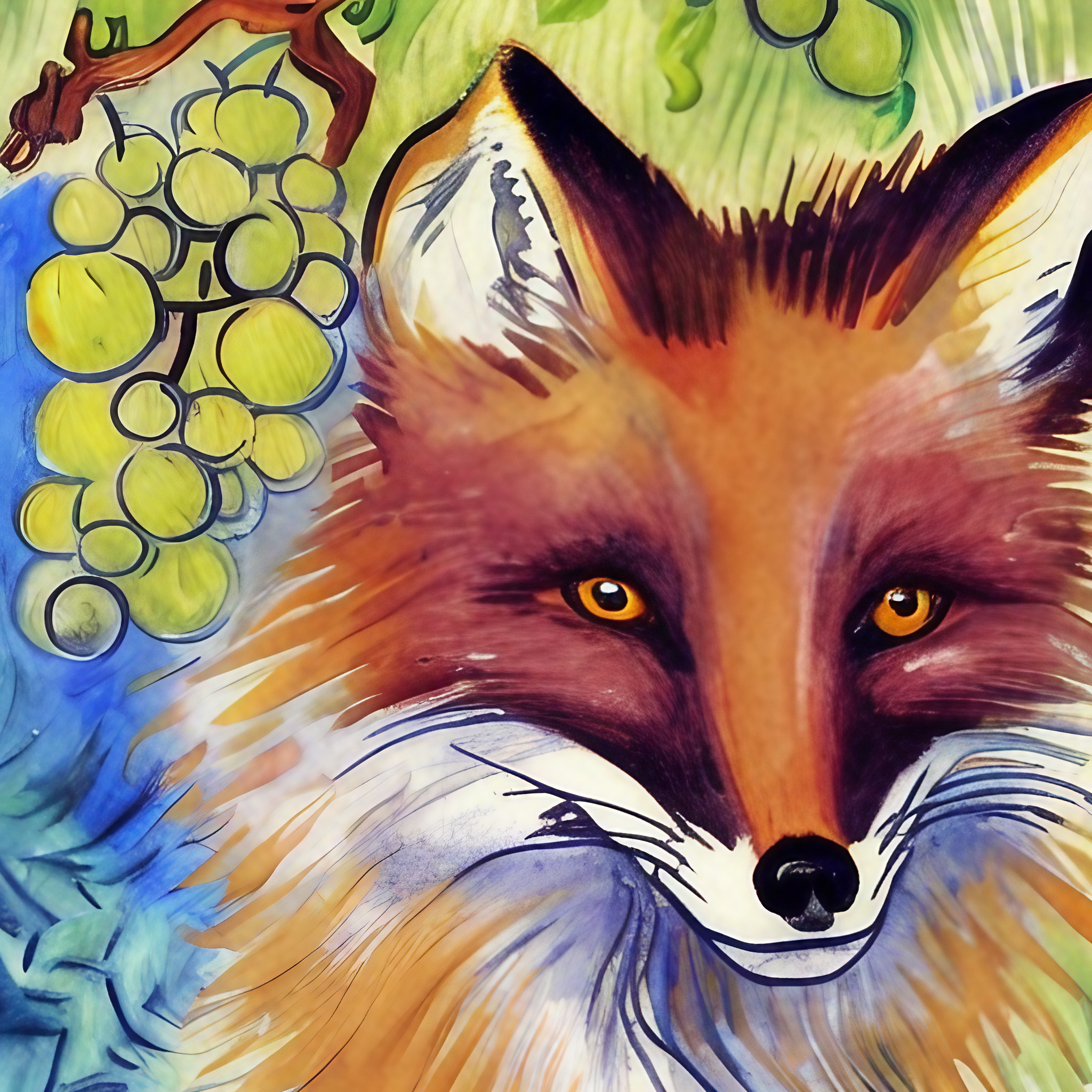
Once upon a time, in a beautiful forest, there lived a clever fox named Felix. Felix loved to explore and try new things, but one thing he loved most was grapes. He had heard stories of a grapevine in the forest, and he longed to taste its sweet and juicy grapes.
One day, Felix finally found the grapevine and saw the most delicious-looking grapes he had ever seen. The grapes hung high on the vine, and Felix couldn’t reach them, no matter how hard he tried.
Feeling frustrated and disappointed, Felix thought to himself “Those grapes are probably sour anyway” and walked away. But as he walked, he noticed a field of juicy and ripe berries, which he had never seen before. So, he decided to try them, and they were even more delicious than he imagined.
From that day on, Felix went back to the grapevine, but not to covet the grapes anymore, instead, he shared the news of the delicious berries with other animals in the forest, and they all enjoyed them together.
The moral of the story is: Wanting something that we can’t have can make us bitter, but when we open ourselves to new opportunities, we might discover something even better. It’s important not to fixate on things we can’t have and be open to new possibilities.
6. The Goose that Laid the Golden Egg
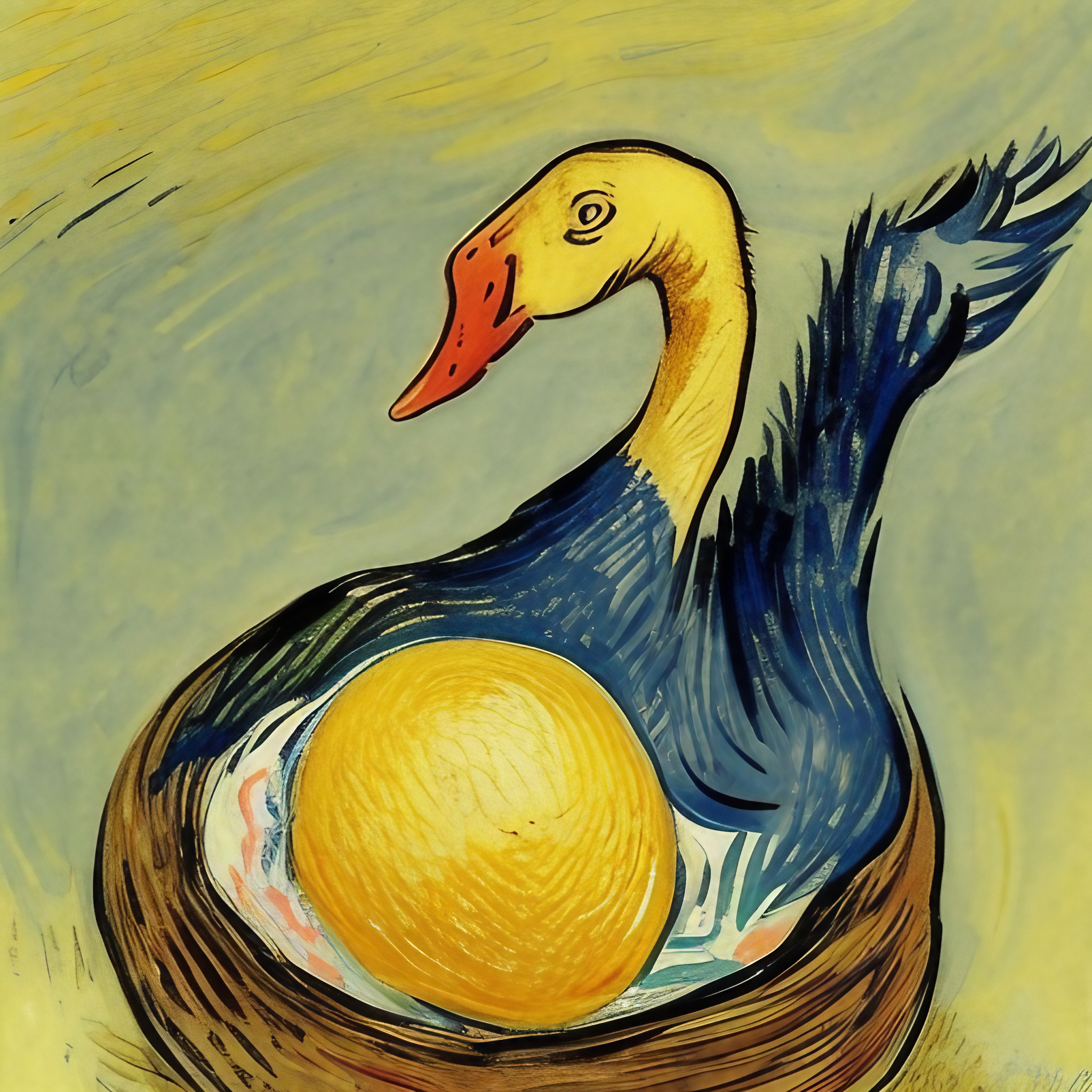
Once upon a time, in a small farm, there lived a farmer named Jack. Jack was a hard worker and had many animals, but one day, he received a special gift from a kind fairy. It was a goose that laid golden eggs.
Jack was over the moon, the goose laid a golden egg every day and he became very wealthy. He could afford to buy a bigger farm, new animals, and even hired some helpers. He was living the life of his dream.
But as time went by, Jack became greedy and impatient, he wanted more and more golden eggs, so he thought to himself “If I just open up the goose, I could get all the golden eggs at once!”
So, Jack took the poor goose and cut it open, but to his surprise, there were no golden eggs inside, and the goose died. Jack realized his mistake, that the goose had been a special gift and was not a machine that could produce gold endlessly.
Feeling guilty and sorrowful, Jack buried the goose and promised himself to treasure what he had, and to never be greedy again. He used his wealth to help others and spread kindness around the farm.
The moral of the story is: Sometimes, being too greedy and impatient can cause us to lose things that are valuable, and that true wealth comes from being grateful for what we have and using it to help others.
Related: 50 Funny Kids Quotes
7. The Wolf in Sheep’s Clothing
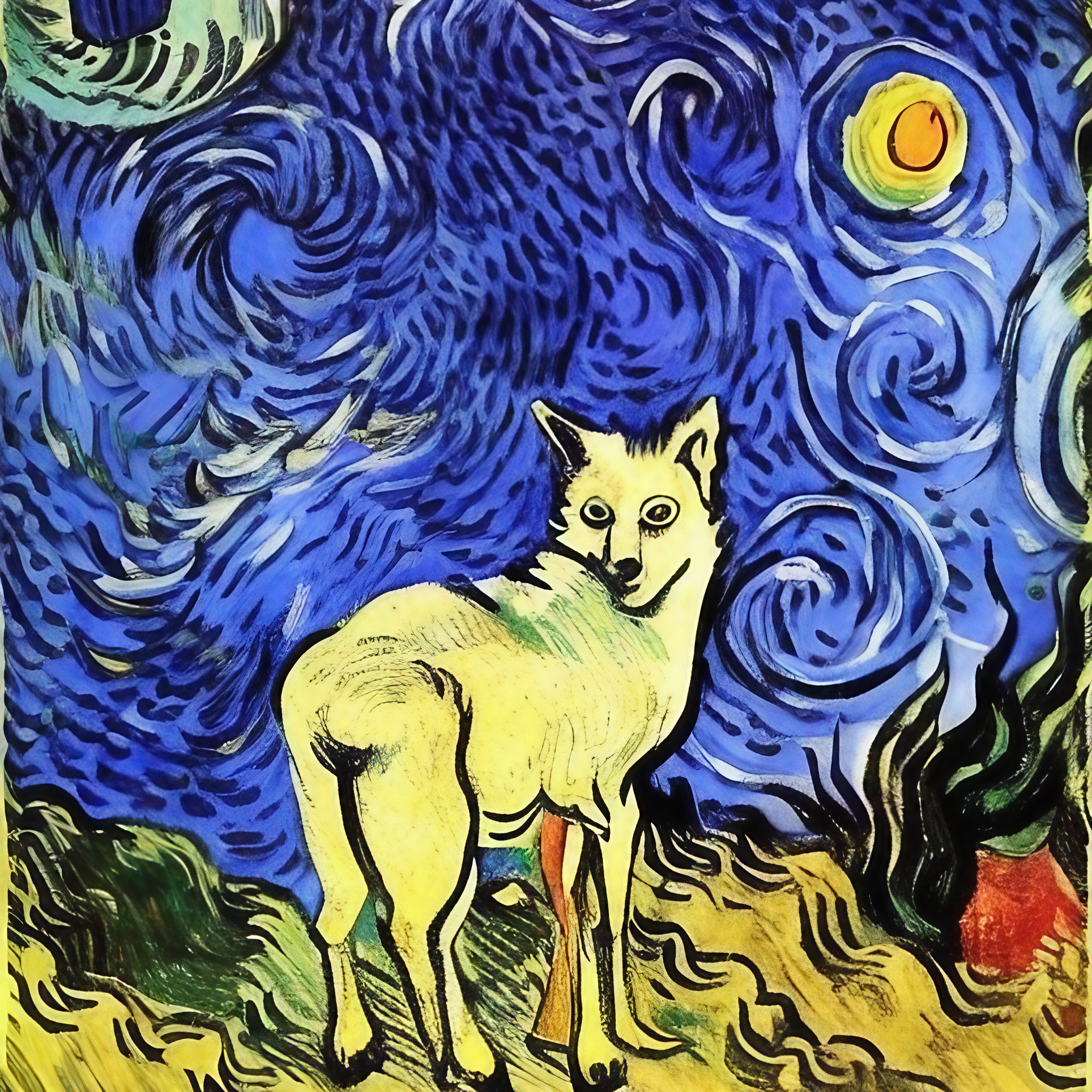
Once upon a time, in a green meadow, there lived a wolf named Will. Will was a clever and resourceful wolf, but he was also very hungry.
One day, Will had an idea. He knew that the nearby farm had a flock of sheep, and he thought that if he could disguise himself as a sheep, he could sneak into the farm and catch one of them.
So, Will put on a sheepskin coat and walked towards the farm, acting like a sheep. The farmer saw him and thought that he was one of his sheep that had gotten loose, so he let him in.
Will mingled with the sheep and waited for the perfect moment to strike, but as he was around the sheep, he started to see how peaceful and content they were, grazing in the meadow and being protected by the farmer. He noticed that the sheep were happy, and he thought: “Why should I disrupt their lives, when I can live my own happy life?”
He took off the sheepskin coat, and walked towards the farmer. He explained his plan, and asked for forgiveness, the farmer saw that Will was genuinely remorseful and decided to give him a chance. Will became a farmer’s helper, and in exchange for his work, he had a steady supply of food, and a new sense of purpose.
The moral of the story is: Appearances can be deceiving, and we should not judge a book by its cover. It’s also important to be mindful of the consequences of our actions and make amends if we realize our mistake. And that there’s a different way of living and finding happiness, that it’s not necessary to harm others for our own benefit.
8. The Town Mouse and the Country Mouse
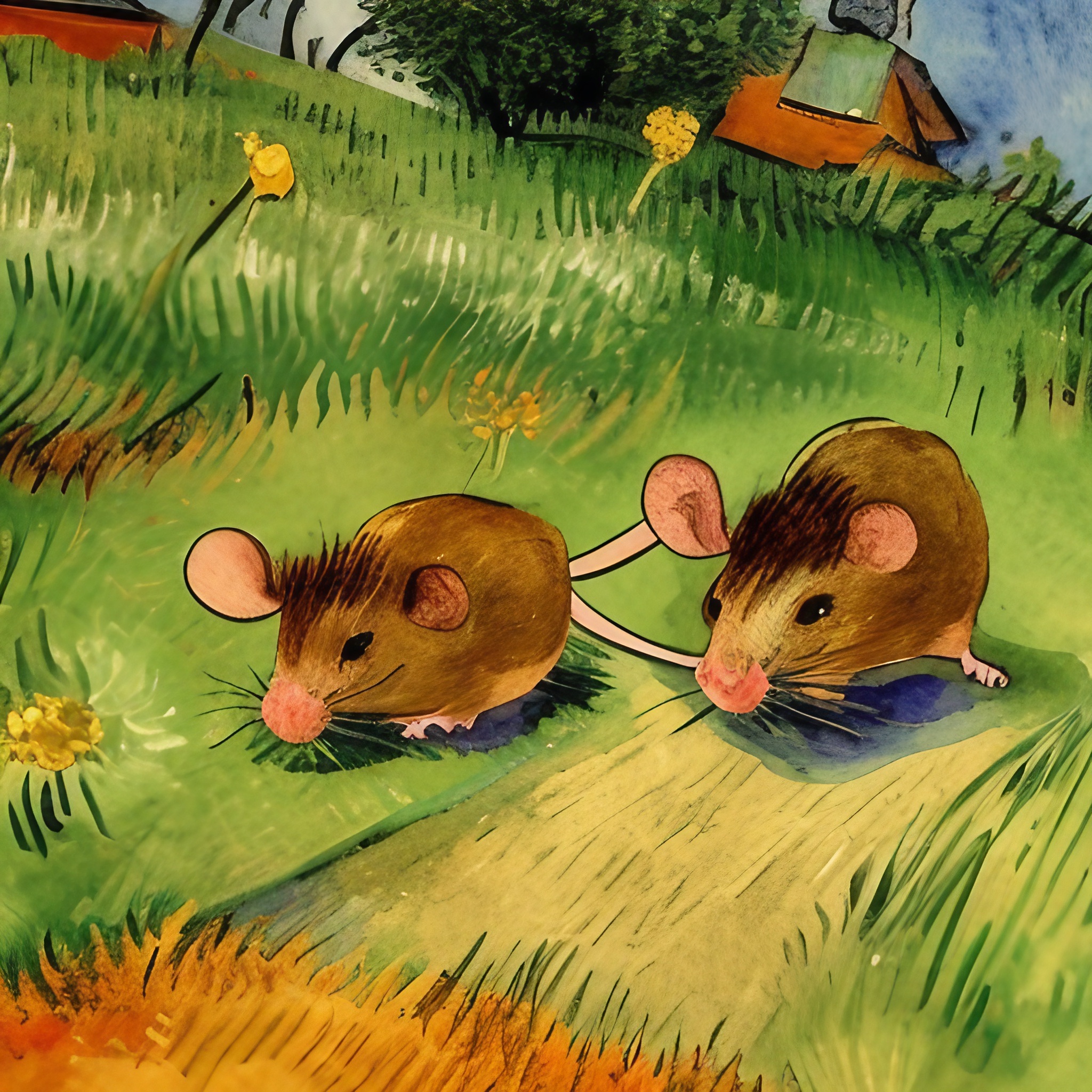
Once upon a time, in a cozy countryside, there lived a country mouse named Cheddar. Cheddar was content with his simple life, enjoying the fresh air, and eating delicious fruits and berries from the bushes. He loved to visit his cousin, a town mouse named Gouda, who lived in a big city.
Gouda had always envied Cheddar’s peaceful life in the countryside, and one day he invited Cheddar to come and visit him in the city. Cheddar was excited and accepted the invitation.
When Cheddar arrived in the city, he was amazed by the tall buildings, bright lights and delicious food. Gouda showed him around, introducing him to all the fancy restaurants and stores. They had a great time together, but Cheddar couldn’t help but notice how Gouda lived in constant fear of being caught by the cat that roamed the streets.
Cheddar also missed the simplicity and peacefulness of his home in the countryside. Gouda, on the other hand, saw how Cheddar’s life was and realized that he didn’t have to live in fear and could enjoy a peaceful life too.
So, Gouda decided to move to the countryside to live with Cheddar, and they both lived happily ever after. Cheddar taught Gouda about the simple pleasures in life, and Gouda taught Cheddar about the excitement of the city. They enjoyed the best of both worlds and learned the importance of valuing and appreciating where we come from and the place we live in.
The moral of the story is: Everyone’s perspective is different and what makes one person happy may not do the same for another. It’s important to understand and respect each other’s differences and learn from them, and to appreciate and enjoy the place we live in.
Related: 5 Steps to An Unforgettable Easter Egg Scavenger Hunt
9. The North Wind and the Sun
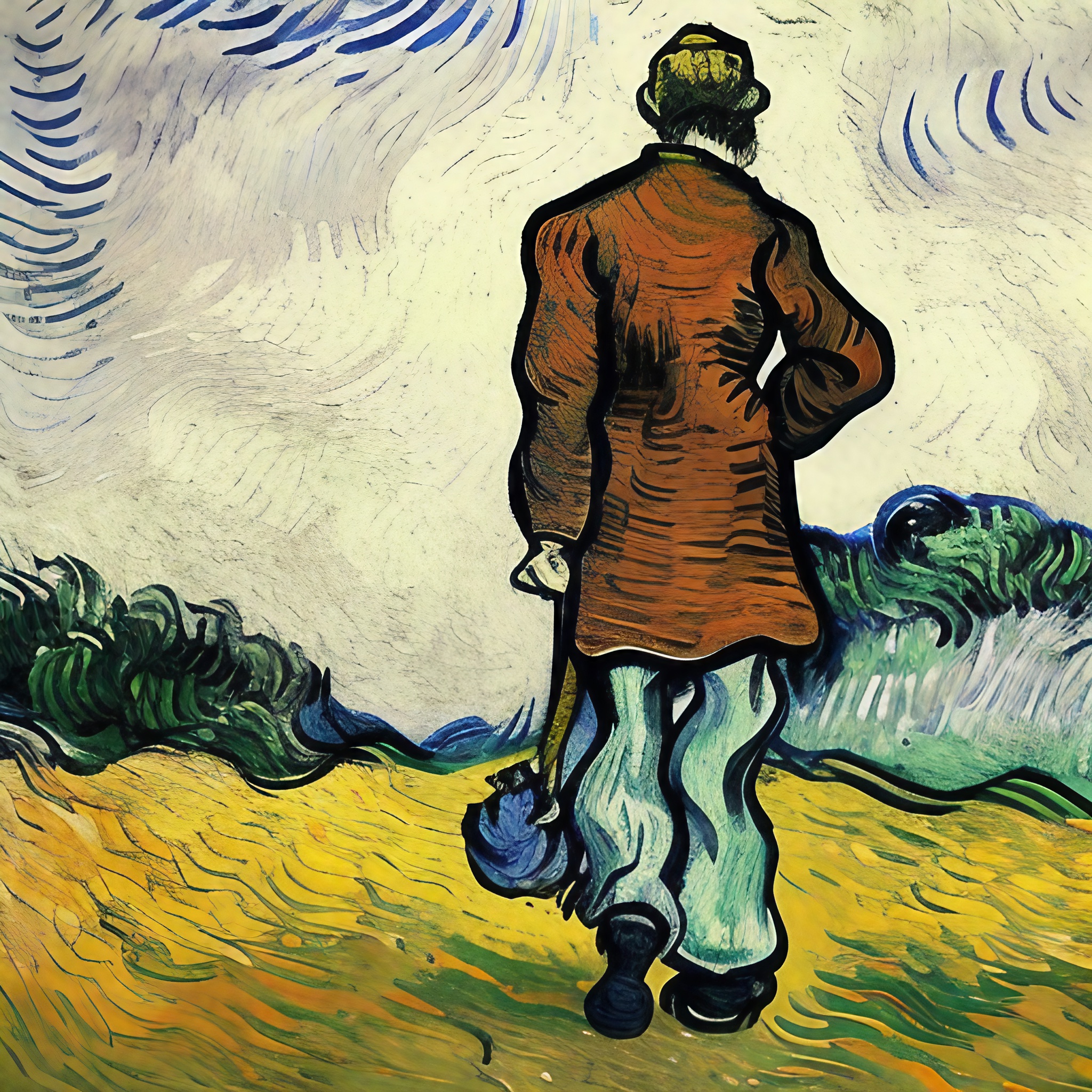
Once upon a time, in a vast and windy land, there lived the North Wind and the Sun. They were both very powerful but had very different personalities. The North Wind was strong and fierce, while the Sun was warm and gentle.
One day, they saw a traveler walking on the road, and they both wanted to prove who was the strongest. The North Wind boasted, “I’ll show you how strong I am, watch me blow that traveler’s coat off!”
The North Wind blew with all his might, but the traveler just held on to his coat tighter. The Sun, seeing the failure, said “Let me try, I’ll use my warmth and kindness to coax the traveler to take off his coat.”
The Sun shone its warm rays on the traveler and the traveler felt the warmth and took off his coat, and enjoyed the sun.
The North Wind realized that sometimes, gentle persuasion is more effective than brute force. And that, being kind and considerate can be more powerful than being fierce and strong.
The moral of the story is: Sometimes, using kindness and understanding is more effective in getting what we want, rather than using brute force. And that, different approaches can lead to different results.
10. Jack and the Beanstalk

Once upon a time, in a small village, there lived a boy named Jack who lived with his mother and their cow, Milky. They were very poor, and the cow was their only source of income. One day, Milky stopped giving milk and Jack’s mother told him to take her to the market to sell her.
On the way, Jack met an old man who offered him magic beans in exchange for the cow. Jack, not seeing any value in the beans, traded the cow for the beans.
His mother was angry when he got home, and threw the beans out of the window in frustration. But that night, a beanstalk grew right up to the sky, and Jack decided to climb it to see where it would lead him.
He climbed and climbed until he reached the top, where he found a castle owned by a giant. The giant was a grumpy and mean creature, who kept a golden goose and a magical harp that sang by itself. Jack was determined to take back something valuable to his family.
He sneakily took the golden eggs from the goose, and the harp and made his way back down the beanstalk. The giant woke up and realized the theft, he chased Jack but the beanstalk withered and the giant fell and perished.
Jack and his family were able to live a good life with the riches he brought back from his adventure, but also learned that honesty is the best policy and stealing is not the way to solve their problems.
The moral of the story is: Sometimes taking a chance and trying something new can lead to unexpected opportunities and success, but also that one should always be honest and respectful of other’s belongings.
Related: The Top 10 Alarm Clocks for Kids
11. The Miller, His Son, and Their Donkey
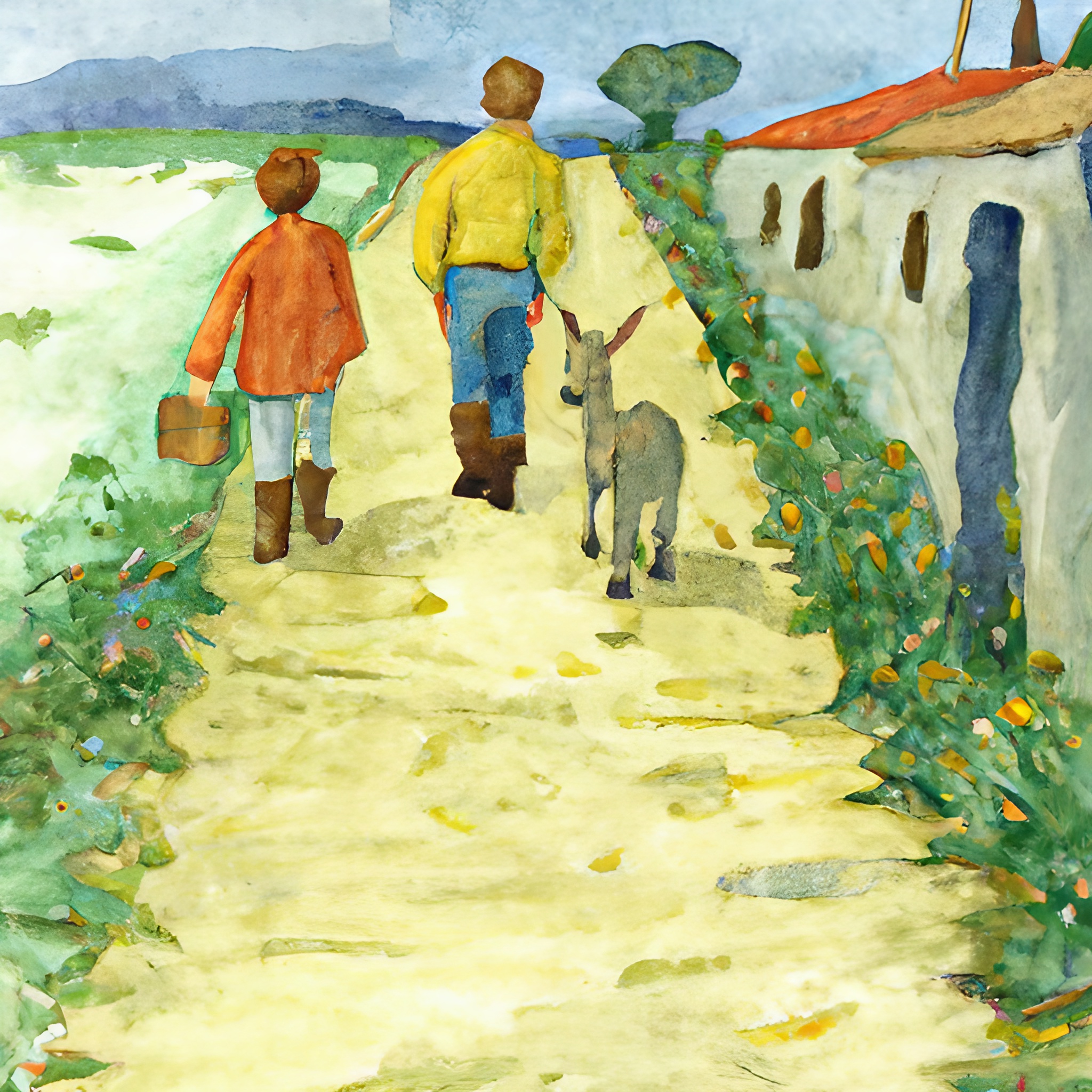
Once upon a time, in a small village, there lived a Miller, his Son and their Donkey. They had a donkey that helped them carry their grain to the market to sell. One day, the Miller, his Son and the Donkey set out on their journey to the market.
As they walked along the road, some people laughed and said “Why are you walking? Ride the donkey.” So the Miller and his Son decided to ride the donkey, but then they passed by some other people who said “Why are you riding? The donkey should be carrying the grain!”
Feeling confused and unsure of what to do, they decided to put the grain on the donkey’s back, but then they passed by some other people who said “Why is the donkey carrying all the load? He’s too small and weak, the both of you should carry it!”
Feeling unsure and not wanting to upset anyone, the Miller and his Son ended up carrying the grain themselves, and the donkey followed them, feeling happy just being together. They got to the market and had a great day selling their grains.
The moral of the story is: Sometimes people might have different opinions and it’s easy to get caught up in trying to please everyone. But it’s important to do what feels right for you, and not to worry about what others think. Also, that sometimes being together and supportive is more important than trying to please everyone.
12. The Bremen Town Musicians
Once upon a time, in a small village called Bremen, there lived four animals, a donkey named Jack, a dog named Duke, a cat named Cleo and a rooster named Rocky. They were all getting old and were no longer useful to their owners, so their owners decided to get rid of them.
Feeling unwanted and hopeless, the four animals met in the village square and decided to leave their homes and become musicians in the town of Bremen. They figured that if they could make beautiful music together, they could earn a living and be happy.
They set off on their journey and along the way they met a group of bandits who were planning to steal from a wealthy farmer’s house. The four animal musicians saw an opportunity and devised a plan, they went to the farmer’s house and started to make noise and sing loudly. The bandits, thinking that the house was already occupied by other people, ran away.
The farmer, who was awakened by the noise, saw the four animals and, impressed by their bravery, offered them a permanent home and to share his wealth with them. They accepted, and from that day on, the four animal musicians became the pride of Bremen, entertaining the villagers and living happily ever after.
The moral of the story is: No matter how old you are or how different you may think you are, you can always find a new purpose and opportunity in life, and that working together and using our unique talents can lead to success and happiness. It’s also important to be adaptable and open to new possibilities, and that sometimes, a change in circumstances can lead to a better life.
Related: Kids Activities & Essentials You Need For A Road Trip With Toddlers
13. The Emperor’s New Clothes

Once upon a time, in a grand kingdom, there lived an Emperor who loved to show off his clothes. He had the most magnificent clothes, and loved to parade them in front of his people.
One day, two con artists came to the kingdom and offered to make the Emperor a new set of clothes that were so special, that only the smartest and most competent people would be able to see them. The Emperor, excited at the prospect of having such exclusive clothes, agreed to let the con artists make them for him.
The con artists went to work and pretended to make the clothes, but in reality, they made nothing. They told the Emperor that the clothes were so special and so fine that they were invisible to anyone who was not fit for his position or was stupid.
The Emperor, not wanting to be thought of as stupid, went along with it, and even paraded around in front of his people wearing nothing at all. All the courtiers, not wanting to appear incompetent, said they could see the clothes, but one small boy cried out, “But the Emperor is not wearing anything at all!”
The Emperor realized that he had been tricked and was embarrassed, but he saw the humor in it and started laughing. He realized that it’s not about what we wear or have, but about being confident and comfortable in ourselves. From that day on, the Emperor stopped caring so much about his clothes and started to focus on being a good leader and caring for his people.
The moral of the story is: Sometimes people may try to deceive us and make us believe in something that is not real, and it’s important to have the courage to speak the truth, and not be afraid of what others may think. It also teaches that true confidence and self-worth comes from within, not from external things.
14. The Pied Piper of Hamelin
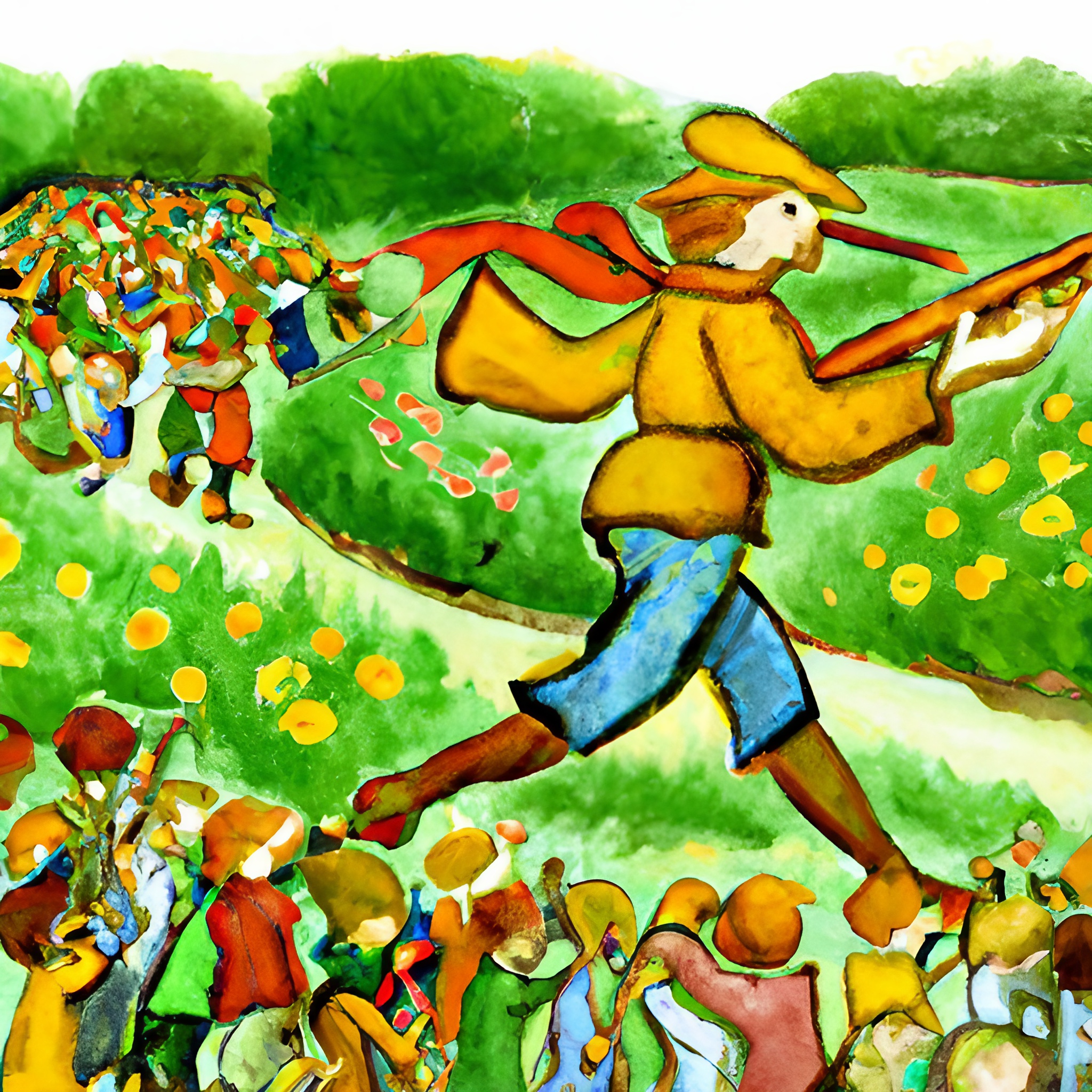
Once upon a time, in a small town called Hamelin, there was a big problem with rats. They were everywhere, in the streets, in the houses, and the people were very afraid. The mayor of the town, desperate to get rid of the rats, put out a call for help.
A mysterious man dressed in colorful clothes, known as the Pied Piper, came to the town and offered to help. He said he had a special gift of playing music that would charm the rats, and they would follow him out of town forever.
The mayor of the town was skeptical but, with no other options, he decided to give the Pied Piper a chance. The Pied Piper played his flute, and the rats came out of their hiding places, attracted by the music. They followed the Pied Piper out of town, and the town was finally free of the rat problem.
The people of Hamelin were very happy and grateful for the Pied Piper’s help, but the mayor didn’t keep his promise to pay the piper for his service. The Piper, saddened by this, went to the town and played a tune, but this time, instead of rats, it was the children of the town that followed him, enchanted by his music. The piper lead them out of the town and into a magical cave, where they danced and played, never to be seen again.
The townspeople were horrified and realized their mistake, they should have kept their promise and the Pied Piper would never have taken the children. They were never able to bring the children back and the town was forever changed.
The moral of the story is: It’s important to keep our promises and to be honest in our dealings with others, because if we break our word, we risk losing trust and damaging relationships. It also teaches that actions have consequences and sometimes, it can be hard to fix a mistake once it’s been made.
Related: Chores Kids Can Actually Help With
15. The Fisherman and His Wife
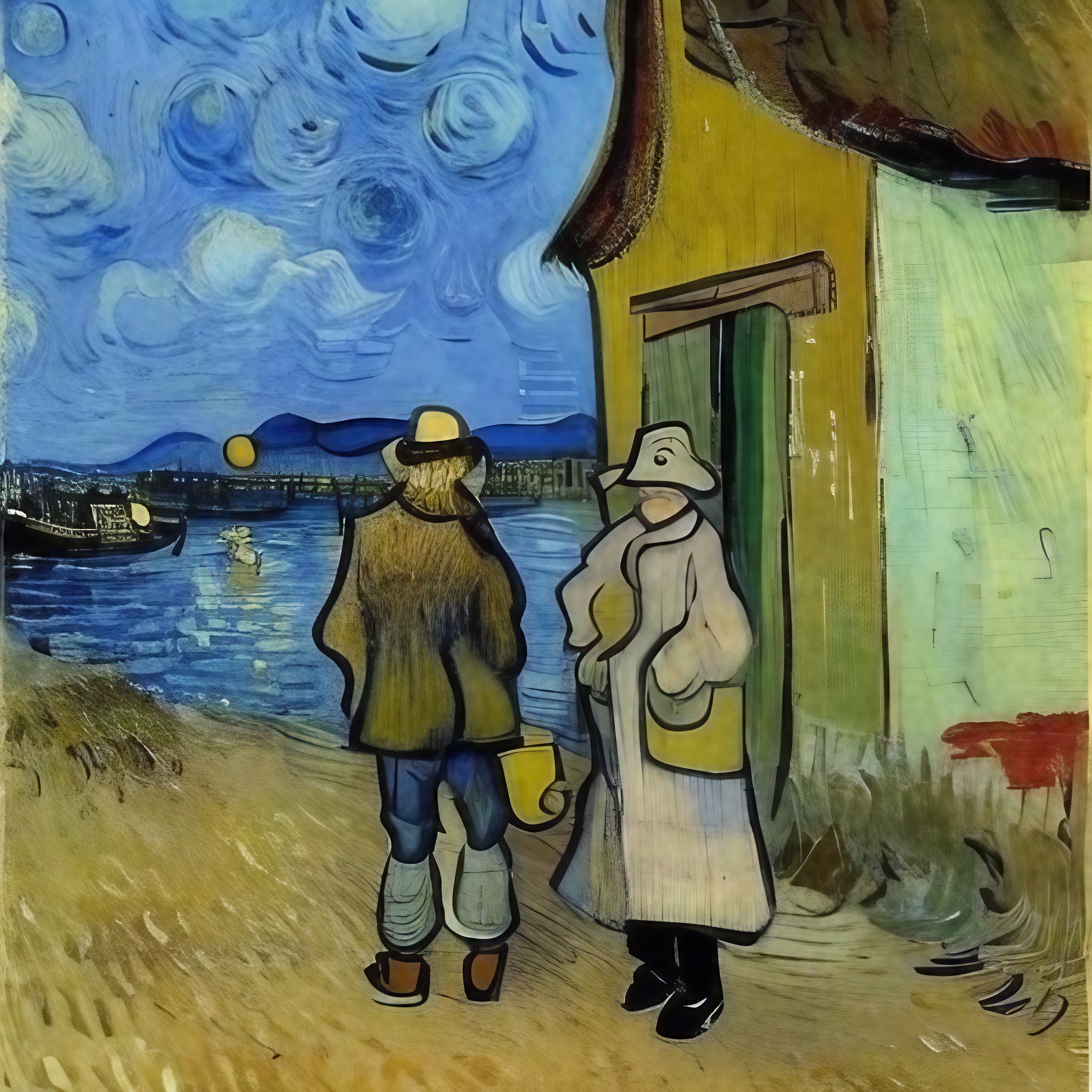
Once upon a time, in a small village by the sea, there lived a fisherman named Finn and his wife, named Gemma. They lived in a small cottage by the shore and had a happy but simple life. Finn would go out to sea every day to fish and bring home the catch for them to sell and eat.
One day, as Finn was fishing, he caught a magical fish. The fish told Finn that it was a magical fish and would grant him any wish he desired. Finn was overjoyed and wished for a bigger cottage for him and his wife to live in.
The fish granted Finn’s wish and soon, he and Gemma moved into a beautiful, bigger cottage. But Gemma, who was never satisfied, wanted more and more, she wanted a castle, then a palace, then an even bigger palace. And so on and so forth.
As Finn went on to make more and more wishes, they became more extravagant and unnecessary, they had all the luxuries of the world but no happiness. They were so focused on their material wealth that they didn’t appreciate the things that truly mattered in life like love, family and friends.
Finally, they realized that they were missing the simple things in life, the things that truly brought them happiness. They begged the fish to bring them back to their small cottage by the sea, and the fish granted their wish. They were happy and content, with a new understanding of what truly mattered in life.
The moral of the story is: It’s easy to get caught up in wanting more, but true happiness comes from appreciating what we have and being content with simple things in life. It teaches that the most important thing is to appreciate the small things in life and to be grateful for what we have, rather than constantly striving for more. It’s also important to remember that true happiness is not found in material wealth, but in the things that truly matter, such as love, family and friends.
16. The Three Little Pigs
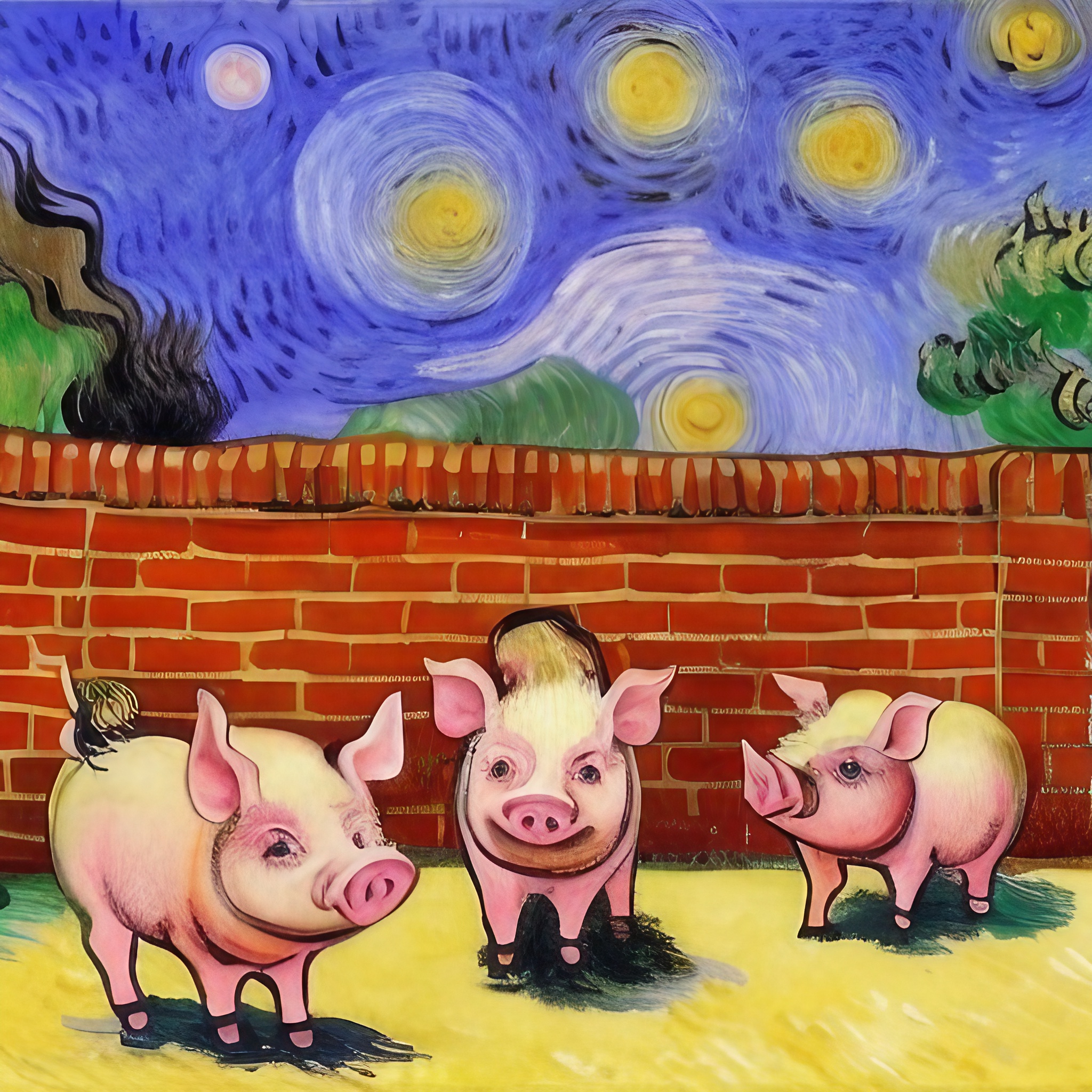
Once upon a time, there were three little pigs named Ham, Bacon and Chops. They were brothers and decided it was time for them to leave their mother and build their own homes.
Ham wanted to build a house out of straw because it was easy and fast, Bacon decided to build a house out of sticks, because he thought it was a good balance between strength and speed, and Chops wanted to build a house out of bricks because it was the strongest and safest.
When they finished building their houses, a big bad wolf came along and saw their houses. The wolf blew down Ham’s straw house with one puff, he blew down Bacon’s stick house with two puffs, but when he tried to blow down Chops’ brick house, it stood strong and he couldn’t blow it down.
The three little pigs realized the importance of making smart and careful choices when building their homes and being prepared for potential dangers. They had learned an important lesson and lived happily ever after in their sturdy brick houses.
The moral of the story is: Taking shortcuts can be tempting, but it’s important to make smart and thoughtful decisions, and to be prepared for potential dangers. It also teaches that hard work and perseverance can lead to long-term safety and success.
Related: Activities for an Only Child that are Easy and Enjoyable
17. The Three Billy Goats Gruff
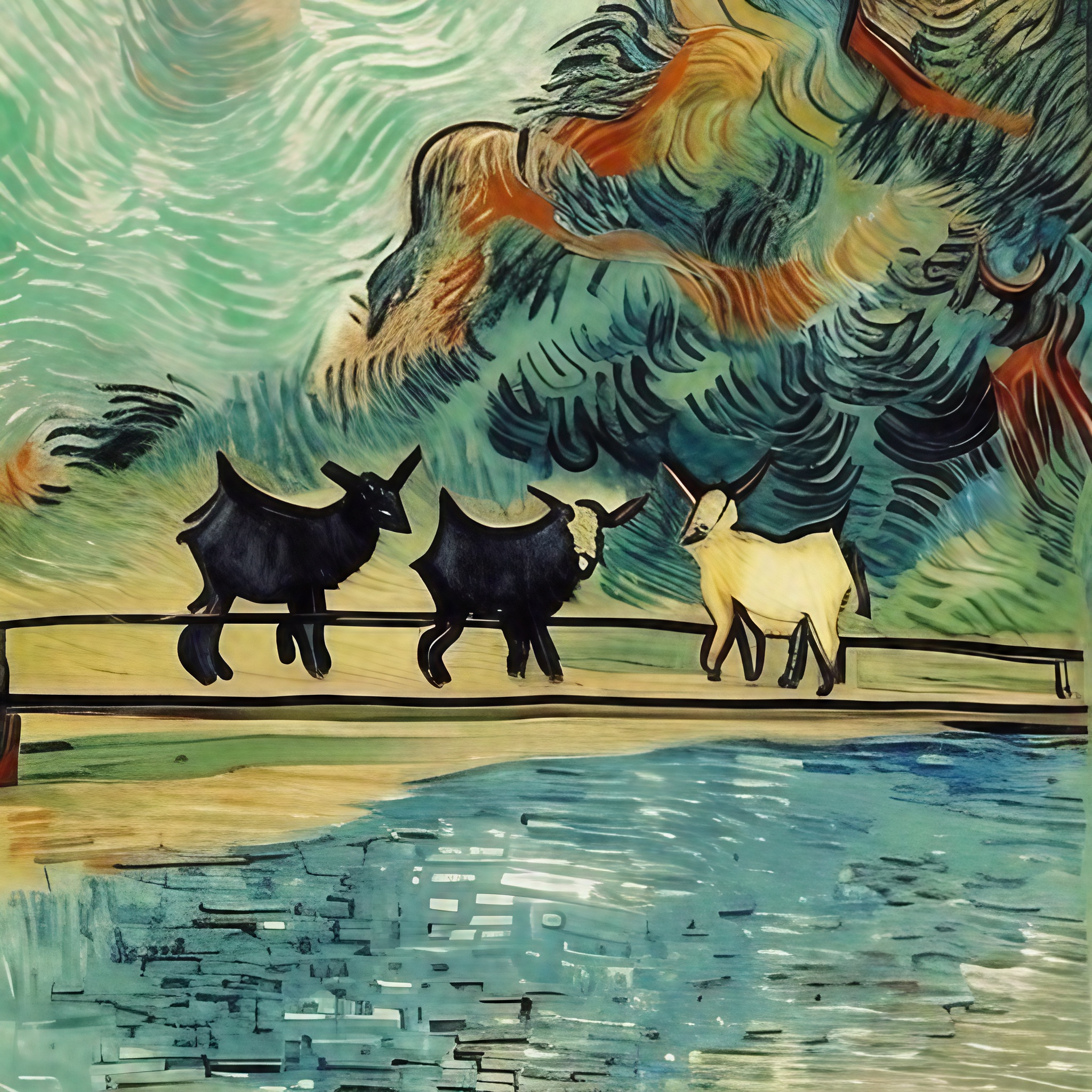
Once upon a time, in a green meadow, there were three young billy goats named Max, Mid and Mini. They were brothers and they were very hungry and wanted to eat the sweet grass on the other side of the stream, where the grass was always greener.
The only problem was that a big and hungry troll lived under the bridge and would eat any animal that tried to cross the stream. The three goats were worried but determined to get to the other side.
Max, the eldest and the bravest, decided to go first, he talked to the troll and told him that he was not alone, he was the first of the three goats, and that two more were on the way.
Mid, the middle brother went next, and he too talked to the troll and reminded him that two more goats were coming, and that they were much bigger than him.
Finally, Mini, the youngest and the strongest of the three goats, went last, and he showed the troll that he had nothing to fear, as he was bigger and stronger, and the troll couldn’t eat all of them.
The troll, realized that he could not defeat all three of them, and let them pass, and from that day on the billy goats were able to cross the stream and eat the sweetest grass, and the troll found alternative food sources.
The moral of the story is: Working together, planning and being creative can often overcome obstacles and achieve our goals, and that sometimes it’s better to find a peaceful solution than to fight.
The Important of Teaching Your Kids Morals Through Short Stories
Teaching morals to children through short stories is a powerful and effective way to help them understand and internalize important values and lessons. Short stories are a great medium for conveying moral lessons because they are easy to understand, engaging, and memorable. They allow children to see the consequences of different actions and behaviors in a relatable and non-threatening way.
The use of characters and plot in short stories also makes it easy for children to relate to and understand the emotions and motivations of the characters, making it easier for them to apply the lessons to their own lives. The characters and their actions in the story can be used to spark discussions and debates on ethics, making it a powerful tool for helping children learn to think critically and form their own opinions about right and wrong.
Short stories can be used to teach children a wide range of moral values, including honesty, kindness, responsibility, compassion, and courage. Many short stories are timeless and have been passed down through generations, making it an excellent way to share traditional values and cultural customs. The stories also can inspire children to be creative and think outside the box, encouraging them to find their own solutions to problems they may encounter in life.
In conclusion, teaching morals to children through short stories is an effective way to help them understand important values, internalize them and apply them to their daily life. These stories can be a powerful tool for encouraging children to think critically and creatively, and for fostering a strong sense of character and ethics in them.
Related: 11 Amazing Relaxing Gifts For Mom






